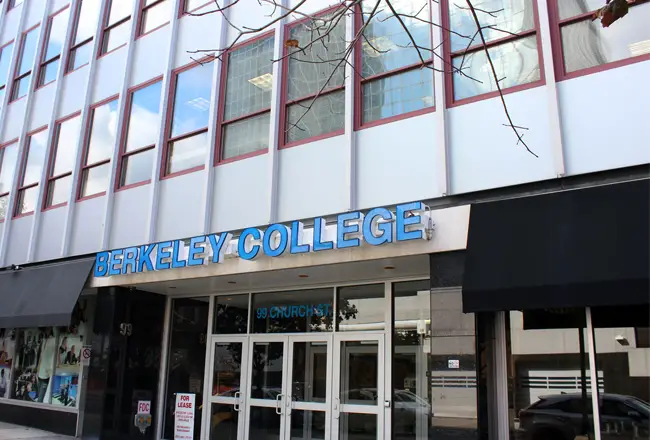New York City is taking Berkeley College to court for what it says are deceptive and predatory recruiting and loan collection practices.
Berkeley is one of the largest for-profit colleges in New York, with more than 3,500 students spread across campuses in Manhattan, Brooklyn, White Plains and four New Jersey locations. Berkeley”™s White Plains campus, at 99 Church St., offers business, health and professional studies programs.
To bring new students to its campuses, the New York City Department of Consumer Affairs accuses the college of aggressive recruiting that deceives students from low-income backgrounds on potential financial aid and institutional grants.

The allegations are part of a lawsuit the DCA filed against the college in Manhattan Supreme Court on Oct. 19. DCA Commissioner Lorelei Salas said Berkeley College recruiters “appear to say whatever they think a prospective student wants to hear, especially when it comes to academic programs, employment, transfer credits and federal student loans, regardless of the truth, to convince them to enroll.”
A Berkeley College spokesperson denied the allegations and said the lawsuit is under review by its legal counsel.
The lawsuit follows what the DCA said was a two-year investigation of the college, during which department investigators interviewed current and former students, ran undercover operations and reviewed thousands of pages of documents from Berkeley.
The investigation paints a picture, the DCA claims, of a college that pretends to advocate on behalf of first-generation college students while actually misrepresenting facts about the financial aid process.
In one instance, DCA officials said a student was told by a Berkeley recruiter she qualified for a scholarship that would cover practically all of her part-time tuition. A year later, the lawsuit states, she discovered that paperwork Berkeley had her sign put her unknowingly on the hook for more than $13,000 in federal student loans. Her scholarship only covered $1,130 per term, according to the lawsuit, while part-time tuition and fees totaled $4,475 per term.
The school is accused of “tricking” students into taking out loans directly from Berkeley, which were described as payment plans. Berkeley would allegedly block students from paying tuition balances up front, instead steering them into a payment plan.
Berkeley recruiters also allegedly misled students about the employment and graduation prospects of its programs. A college recruiter told an undercover DCA inspector that “96 percent of our students graduate and are employed once they graduate,” the lawsuit alleges. Berkeley”™s graduation rate is actually 29 percent, according to the lawsuit.
The college”™s debt-collection practices are also challenged in the lawsuit. Berkeley allegedly refused to release one graduate”™s diploma before he paid $3,000 that the college said he owed, despite allegedly having previously told him he graduated owing nothing.
The lawsuit also questions Berkeley”™s underlying business model. The school, DCA officials argue, “spends a lot of money to target and recruit a population of students comprised mostly of people of color and first-generation college students with limited financial literacy and little familiarity with higher education.”
The school”™s average costs per semester for a full-time student are $12,950 in tuition and fees. The lawsuit compares that to schools in the City University of New York public college system. At CUNY, a student can expect to pay, on average, $3,685 per semester at four-year campuses and $2,720 at two-year campuses.
Berkeley charges the higher fees despite, the lawsuit alleges, spending less on student education than competing nonprofit colleges. Citing internal documents, DCA officials say Berkeley spends an average of $5,161 per student on instruction. CUNY, meanwhile, spends $11,000 per student, while nonprofit colleges in New York state spend an average of $19,025 per student on instruction.
Instead, the lawsuit argues, Berkeley invests heavily in its enrollment and admissions departments. The DCA said the school”™s recruiters often work off scripted prompts that push students to visit the campus, even if Berkeley does not offer the program a prospective student is interested in. If a student told a recruiter he or she was interested in engineering, Berkeley allegedly had its recruiters reply that “engineering is a very demanding field and often requires obtaining a license after completing a college degree.” Recruiters allegedly also were told to create a sense of urgency by telling students “classes are filling up quickly.”
In response to the allegations, the Berkeley spokesperson said the college has “an 87-year history of serving students in the New York metropolitan area under the highest principles.”
The school also provided a link to a 2017 Income Mobility Report Card, which placed Berkeley 21st among all U.S. colleges for the likelihood a graduate moved up two or more income quintiles.
The DCA lawsuit asks the court to require the college to pay restitution to customers allegedly deceived by its practices.



















